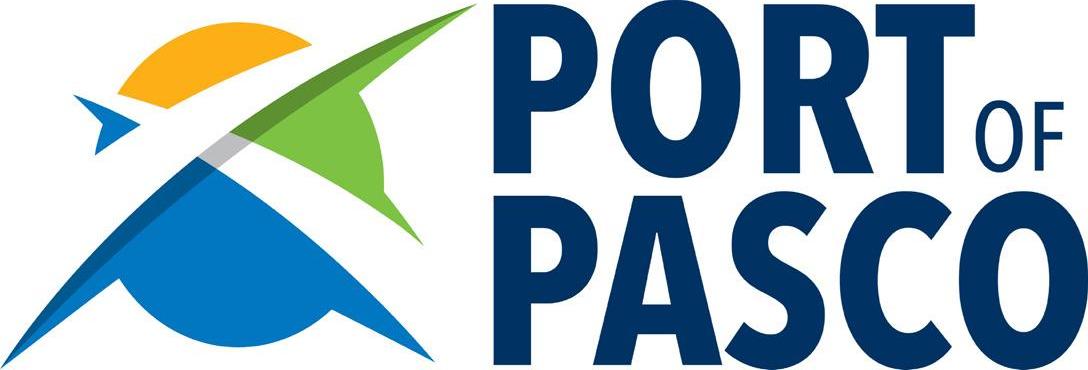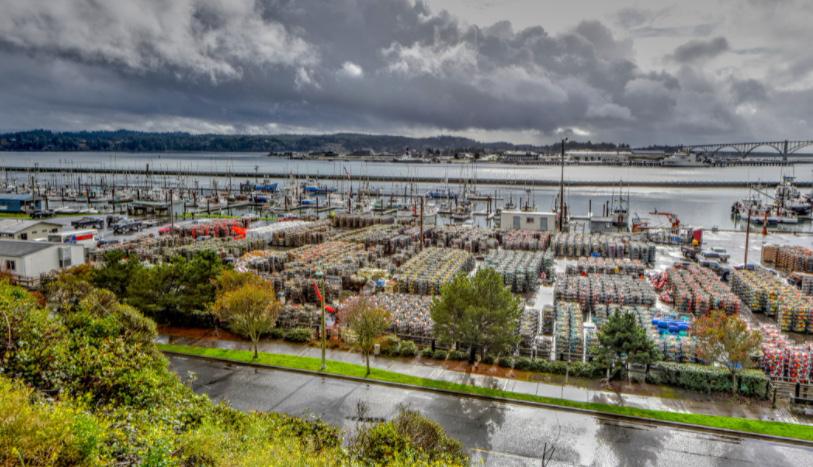
5 minute read
Port of Pasco
CAPITAL BUDGET INCLUDES $7.5 MILLION FOR REIMANN INDUSTRIAL CENTER
The Capital Budget, approved late last week by the Washington State Legislature, will deliver $7.5 million in funding to construct infrastructure to serve the Port of Pasco’s new Reimann Industrial Center.
Advertisement
A large allocation for infrastructure, the funding will make it possible for the Port and its community partners to begin Phase 1 of development. When complete, the Reimann Industrial Center is expected to create more than 1,000 manufacturing jobs and inject over $10 million in new property taxes into Franklin County. The state Capital Budget funding is contingent upon a new large ag processor officially committing to locate at the Reimann Industrial Center.
“Port of Pasco’s Commissioners are pleased and grateful for the Washington Legislature’s funding of the Reimann Industrial Center project,” said Commission President Jim Klindworth. “We appreciate their vote of confidence in the Port, and its ability to create successful economic development projects.”
The port district received support from all local legislators in the 8th, 9th, and 16th Districts. Klindworth also acknowledged the support of the Senate and House Capital Budget Committees and leaders of those committees. The 300-acre Reimann Industrial Center is the Port’s newest development area. Currently undeveloped, the Reimann is on the East side of Railroad Avenue between Foster Wells Road and Vineyard Avenue.
State funds will be combined with the Port’s own investment from its Economic Development Opportunity Fund as well as support from other local partners. The Phase 1 project will cost an estimated $15.8 million. The funds will install a water main, sewer main, railroad crossing and rail spur, broadband, and improvements to a portion of Railroad Avenue to include left-hand turn lanes into the Reimann.
“This has been a coordinated team effort over several months,” said Executive Director Randy Hayden. “The Port appreciates all the hard work and effort by our state legislators, the City of Pasco, Franklin County, Franklin PUD, TRIDEC and many others.”
Developing the Reimann will continue the Port’s successful tradition of establishing industrial development projects that have historically attracted food processing, cold storage, and distribution facilities.

SERVING OREGON PUBLIC PORT DISTRICTS AND COLLABORATING WITHIN THE PORT COMMUNITY
ABOUT BUSINESS OREGON:
Business Oregon is the state’s economic development agency. The Department staffs several boards and commissions, which oversee various agency activities to ensure a coherent and integrated approach to economic development across regional service areas. A significant part of this mission involves financing and managing the state’s infrastructure needs to ensure the best use of the public resources.
Business Oregon has been home to Ports Programming since the 1970’s. By law, the agency serves as the statewide coordinating, planning and research entity for all twenty-three (23) public ports, which supports the state’s policy of including Oregon’s ports in planning and implementing economic development. At a high level, this agency works with ports over strategic business planning, grants and loans for infrastructure planning and projects and management of the state’s dredging equipment. Technical assistance is also provided in navigating federal and state government, business recruitment and global trade.
ABOUT OREGON’S PUBLIC PORTS:
Oregon's 23 public ports are special districts, distinct from city or county government. Ports are formed by state statute (ORS Chapter 777 and 778), with leadership provided by elected Port Commissions1 and day-to-day operations facilitated by Port Managers and their staff.
Ports serve a dual [public-private] mission, responsible for supporting a variety of essential business models at market rates – port districts revenue streams are not based on traditional local government sources (e.g. property tax). Yet districts manage administration publically, therefore are responsible for personnel, budget and reporting in accordance with local government law. Core values are leadership, inclusion and service.
Ports are economic drivers, providing gateways to the multi-modal freight network, meaning goods are transferred between ships, barges, trains, aircraft and trucks on their way from production facilities to regional, national and international markets. Exports through Oregon’s ports literally feed the world.
In addition to maritime, aviation and rail business models, port districts own industrial lands, upon which they build and maintain commercial infrastructure, leasing space to tenants within industrial parks. Industrial lands are one of the state’s most valuable resources in terms of net contributions to the economy and tax bases. Traded sector firms that locate within port districts are an engine of economic recovery, stability and expansion, spurring growth in the service sector and paying family wages (or better) to a broad spectrum of workers.
The working waterfronts at ports are important to state tourism, as public marinas support sport and commercial fishing fleets and seafood processing, cruise line vessels, boatyard repairs, as well as recreational fishing and boating. Ports serve as safe harbors for all.

Oregon’s public port districts are closest to business, therefore the most accessible and responsive economic development actors, making ports foundational to Oregon’s economy and quality of life. Port districts are embracing this time of challenge and transformation as an opportunity to reflect on current practices, reaffirm their commitments, quantify their importance to the local economy and reimagine the future role of ports. Maintaining port infrastructure and investing in the modernization of ports is key to economic recovery and future growth. without the vision and effort of the extended ports community.
Because Merchants Exchange readers and Business Oregon have ports in common, the agency wanted to extend Ports Programming as a resource to you. If you want to learn more about ports, have a need to share information with port districts, or coordinate over an initiative, please reach out. By working together, we may find a better way of meeting our shared mission and delivering services.
COLLABORATING WITHIN THE PORT COMMUNITY:
If you have questions or comments, please contact Stephanie Prybyl, Ports Programming, at Stephanie.prybyl@oregon.gov.
Business Oregon is interested in collaborating within the port community over matters of interest to port districts and their diverse business models. This represents an impressive array of valuable stakeholders, including, but not limited to: public/business administration, economic analysis, freight logistics, green or built infrastructure, marketing, maintenance operations, public safety, strategic planning and more. Oregonians could not enjoy the estimated $28B in produced and exported goods and services, making up approximately 12% of the state’s gross domestic product (GDP),











